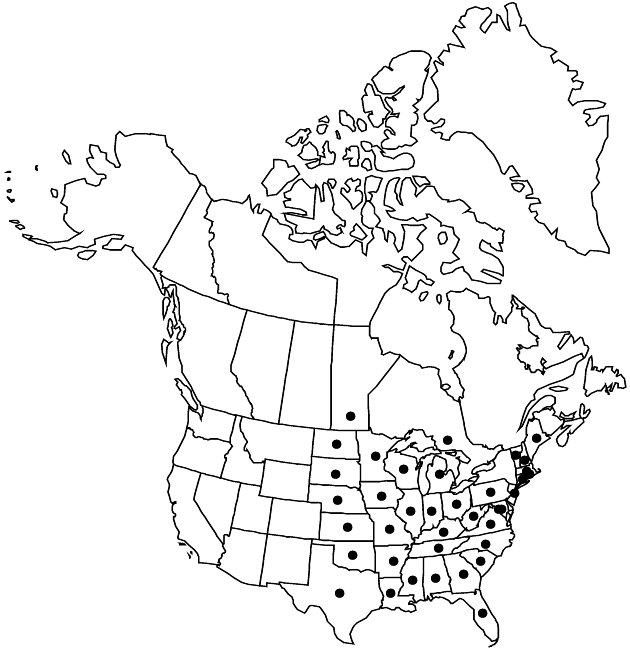Difference between revisions of "Symphyotrichum lanceolatum var. latifolium"
Phytologia 77: 285. 1995.
imported>Volume Importer |
imported>Volume Importer |
||
| Line 56: | Line 56: | ||
|publication year=1995 | |publication year=1995 | ||
|special status=Endemic | |special status=Endemic | ||
| − | |source xml=https:// | + | |source xml=https://bitbucket.org/aafc-mbb/fna-data-curation/src/2e0870ddd59836b60bcf96646a41e87ea5a5943a/coarse_grained_fna_xml/V19-20-21/V20_1159.xml |
|tribe=Asteraceae tribe Astereae | |tribe=Asteraceae tribe Astereae | ||
|genus=Symphyotrichum | |genus=Symphyotrichum | ||
Latest revision as of 20:59, 5 November 2020
Stems stout to slender, glabrous or hairy in lines. Leaf blades broadly oblanceolate (not much reduced in arrays), margins usually serrate. Heads 3–10+ per branch, if many, not congested on lateral branches, not subtended by foliaceous bracts. Involucres 3.9–5.5 mm. Phyllaries: outer 1.9–3.5 × 0.4–0.6 mm, inner 3–4.9 × 0.4–0.6 mm, outer 1/3–2/3 length of inner. Ray florets 16–33; corollas white, laminae 4.1–8.6 mm. Disc florets 13–29; corollas 3.2–5.7 mm, limbs 1.9–3.2 mm, lobes 0.4–1.1 mm. Cypselae 0.8–1.8 mm; pappi 3.1–5.3 mm. 2n = 64.
Phenology: Flowering Jul–Oct.
Habitat: Full sun to partial shade, thickets, edges of wet deciduous woods, margins of streams, ditches
Elevation: 0–800+ m
Distribution

Man., Ont., Ala., Ark., Conn., D.C., Fla., Ga., Ill., Ind., Iowa, Kans., Ky., La., Maine, Md., Mass., Mich., Minn., Miss., Mo., Nebr., N.H., N.J., N.C., N.Dak., Ohio, Okla., Pa., R.I., S.C., S.Dak., Tenn., Tex., Vt., Va., W.Va., Wis.
Discussion
Variety latifolium is generally more southern than var. lanceolatum. It is present in the southern Atlantic and Gulf coastal plain states where the latter is absent. In the southern states it is present inland and not on the coastal plains. The report of this variety for southern Quebec remains to be confirmed.
Selected References
None.